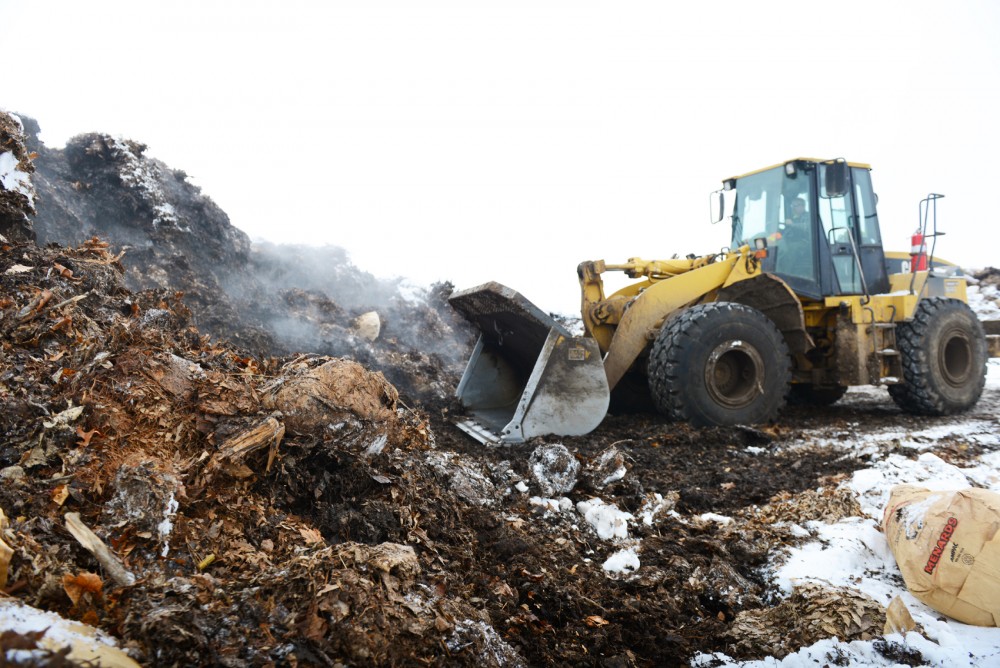A new program will soon keep some kitchen waste — moldy bread, spoiled fruits, eggshells and chicken bones among it — from landing in the trash bin.
Come March, Minneapolis residents who register by the end of the month will receive free organics recycling carts as part of a city program seven years in the making. Food scraps, food-soiled paper products and any certified compostable products will all be allowed in the new bins.
Nearly a third of existing Minneapolis Solid Waste & Recycling customers have already signed up.
Anne Ludvik, compost facility operator for Specialized Environmental Technologies, said her company will process all of the waste put in the new bins.
“Minnesota has always been a leader in recycling,” Ludvik said. “We’re taking food waste and turning it into something good. People are becoming aware.”
She said Minnesota is unique because it didn’t mandate its new recycling program, so those who register care about recycling and tend to do it right.
“The city has had organics recycling pilot programs since 2008,” said Kellie Kish, Minneapolis’s recycling coordinator. “We were testing it out; it started in the Linden Hills neighborhood.”
Felicity Britton, a resident of the pilot neighborhood, was part of the organics programs’ creation and initial rollout.
“We were a group of neighbors who wanted to do something about climate change,” Britton said.
In 2007, they considered creating a community food greenhouse powered with methane gas produced by composted food scraps, said Britton. The city awarded the Linden Hills group a grant, but the greenhouse ended up being unfeasible, she said.
Instead, the greenhouse project’s compost was used to fuel a pilot program for organics recycling and later spread the idea to other neighborhoods. By the end of 2008, Britton said, 800 people in the Linden Hills had signed up to recycle organics.
“Compost is the biggest bang for your buck,” she said. “People wanted to do something.”
Rachael Grunfelder, Minnesota Student Association’s Sustainability Director, said she urged fellow students to sign up for the city’s new program.
The University of Minnesota is also working to implement the recycling of food scraps, said Grunfelder.
“When you hand your plate over in the dining hall, all of the food on the plate gets composted,” Grunfelder said. “You never see where it goes. Most students don’t know this.”
The benefits of composting are worth the extra effort it takes to recycle organics, Ludvik said. The compost helps create its own benefits, she said, as plants grown in compost soil need less watering.
“In traditional recycling … you don’t necessarily get to see the fruits of your efforts,” she said. “With food waste recycling, you have the opportunity to buy this locally produced compost.”















